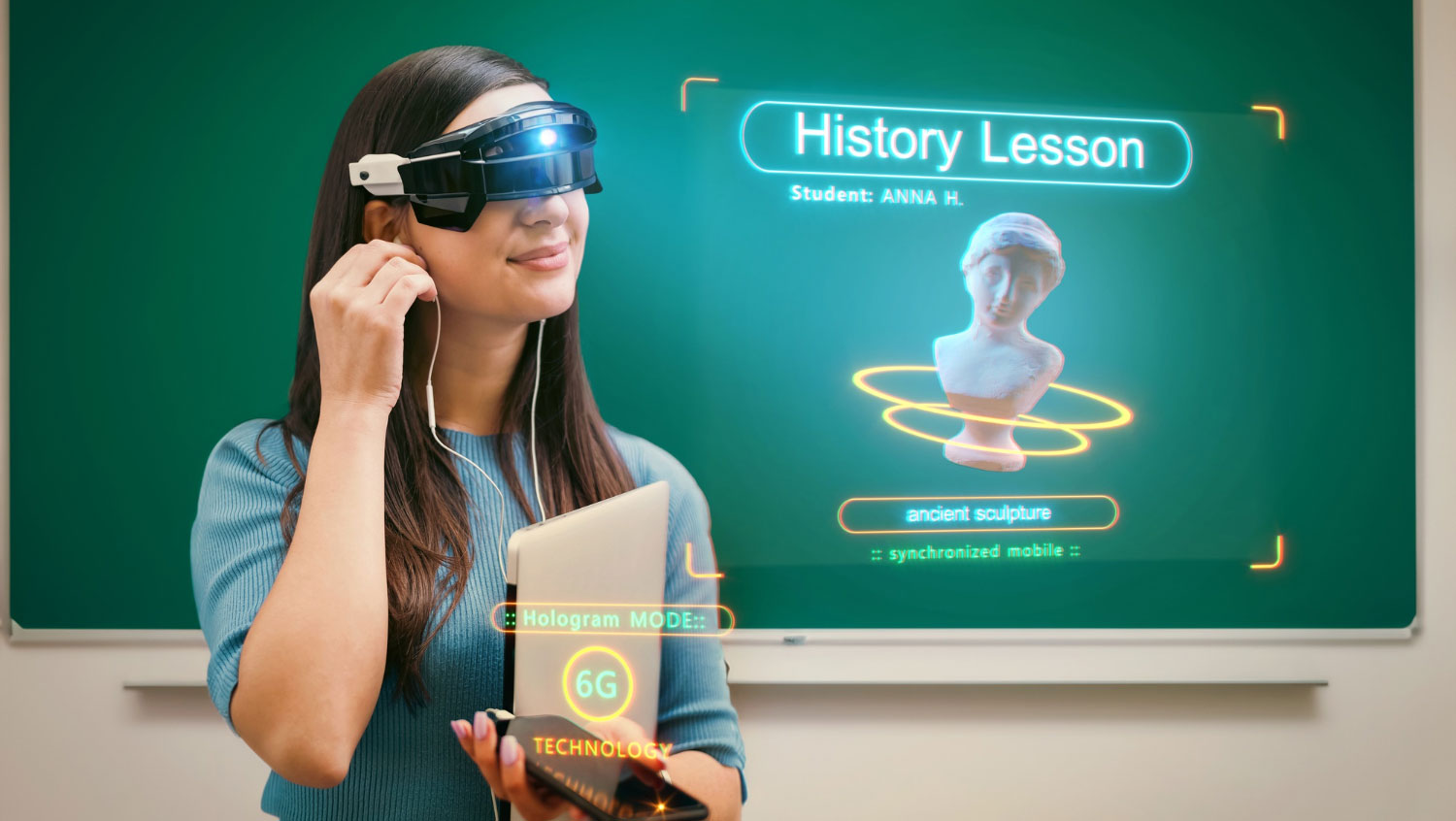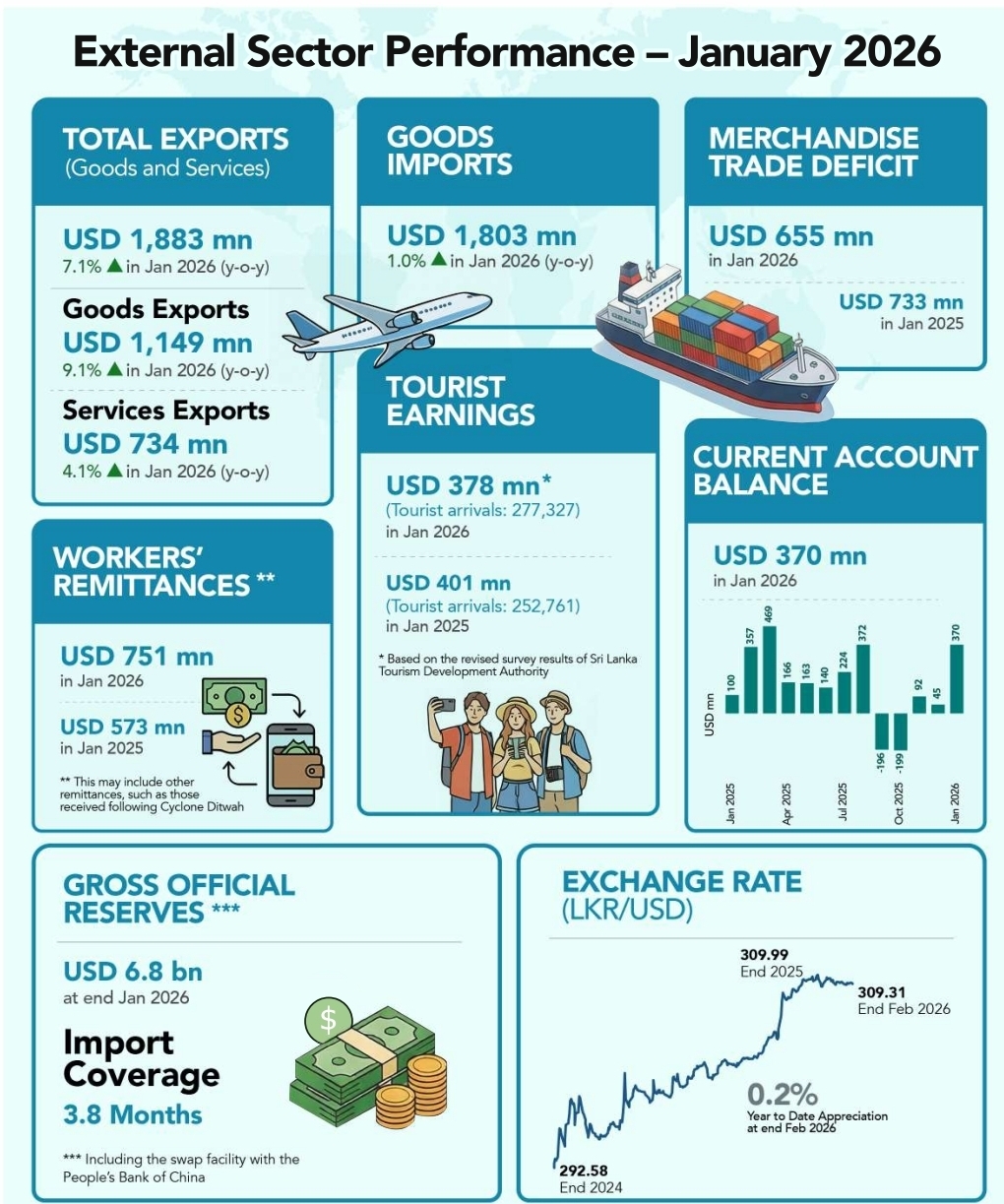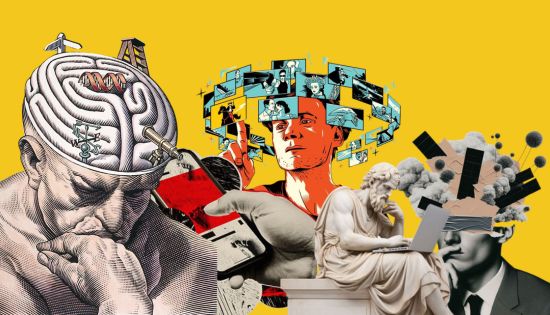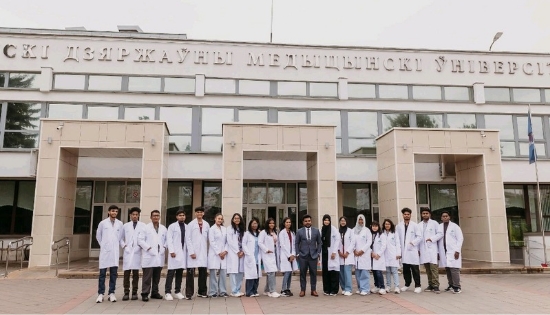Embrace the Future of Education: Top 5 Trends in 2024

In 2024, the world of education is undergoing a profound transformation, driven by technological advancements and evolving learning needs. As we embrace these changes, it’s essential to understand the top trends shaping the future of education.
Personalized Learning: Personalized learning continues to gain momentum, with technology playing a pivotal role. Adaptive learning platforms use data analytics to tailor learning experiences to individual student needs. This approach improves engagement and outcomes by allowing students to learn at their own pace and focus on areas where they need the most help.
Virtual and Augmented Reality (VR/AR): VR and AR technologies are revolutionizing the way students learn by creating immersive, interactive experiences. From virtual field trips to augmented reality textbooks, these technologies make learning more engaging and accessible, particularly for subjects that benefit from visualization, such as science and history.
Artificial Intelligence (AI) in Education: AI is increasingly being used to enhance the learning experience. AI-powered tutoring systems provide personalized feedback and assistance, while AI-driven analytics help educators identify students who may be struggling and intervene early. Additionally, AI is being used to develop customized learning paths based on individual student performance.
Blockchain in Education: Blockchain technology is being explored to improve the security and integrity of educational credentials. By creating a decentralized system for verifying qualifications, blockchain can help combat credential fraud and simplify the process of credential verification, making it easier for students to share their achievements with employers and educational institutions.
Hybrid and Remote Learning: The COVID-19 pandemic accelerated the adoption of hybrid and remote learning, and these models are likely to remain prominent in 2024 and beyond. Educational institutions are investing in technology infrastructure to support these models, ensuring that students have access to high-quality education regardless of their location.
As we look to the future of education, it’s clear that technology will continue to play a central role in shaping how students learn and educators teach. Embracing these trends can help us create a more inclusive, engaging, and effective educational experience for all.

Related News
Wuthering Heights: Book vs Movie – Which Resonates More?
Read • Watch • Learn When Emily Brontë published Wuthering Heights in 1847, few expected the novel to become one of the…
Read MoreWycherley International School Dehiwala Hosts Joyful Kiddies Fiesta 2026 Celebration
Wycherley International School Dehiwala welcomed students, parents and teachers to a spirited celebration of childhood at its Kiddies Fiesta 2026 on 11…
Read MoreBusiness, BUT NOT AS USUAL – Southern Cross University Brings Bachelor of Business to Sri Lankan Students at NSBM Green University
SCU Sri Lanka National Launch | 19–21 February 2026 | NSBM Green University, Homagama Southern Cross University (SCU), one of Australia’s leading…
Read MoreBelarusian State Medical University:A Trusted Pathway to Studying Medicine Abroad with ISC Education
For many Sri Lankan students, gaining entry to a local medical faculty remains highly competitive despite strong academic performance. As a result,…
Read MoreCourses
-

The future of higher education tech: why industry needs purpose-built solutions
For years, Institutions and education agencies have been forced to rely on a patchwork of horizontal SaaS solutions – general tools that… -

MBA in Project Management & Artificial Intelligence – Oxford College of Business
In an era defined by rapid technological change, organizations increasingly demand leaders who not only understand traditional project management, but can also… -

Scholarships for 2025 Postgraduate Diploma in Education for SLEAS and SLTES Officers
The Ministry of Education, Higher Education and Vocational Education has announced the granting of full scholarships for the one-year weekend Postgraduate Diploma… -

Shape Your Future with a BSc in Business Management (HRM) at Horizon Campus
Human Resource Management is more than a career. It’s about growing people, building organizational culture, and leading with purpose. Every impactful journey… -

ESOFT UNI Signs MoU with Box Gill Institute, Australia
ESOFt UNI recently hosted a formal Memorandum of Understanding (MoU) signing ceremony with Box Hill Institute, Australia, signaling a significant step in… -

Ace Your University Interview in Sri Lanka: A Guide with Examples
Getting into a Sri Lankan sate or non-state university is not just about the scores. For some universities' programmes, your personality, communication… -

MCW Global Young Leaders Fellowship 2026
MCW Global (Miracle Corners of the World) runs a Young Leaders Fellowship, a year-long leadership program for young people (18–26) around the… -

Enhance Your Arabic Skills with the Intermediate Language Course at BCIS
BCIS invites learners to join its Intermediate Arabic Language Course this November and further develop both linguistic skills and cultural understanding. Designed… -

Achieve Your American Dream : NCHS Spring Intake Webinar
NCHS is paving the way for Sri Lankan students to achieve their American Dream. As Sri Lanka’s leading pathway provider to the… -

National Diploma in Teaching course : Notice
A Gazette notice has been released recently, concerning the enrollment of aspiring teachers into National Colleges of Education for the three-year pre-service… -

IMC Education Features Largest Student Recruitment for QIU’s October 2025 Intake
Quest International University (QIU), Malaysia recently hosted a pre-departure briefing and high tea at the Shangri-La Hotel in Colombo for its incoming… -

Global University Employability Ranking according to Times Higher Education
Attending college or university offers more than just career preparation, though selecting the right school and program can significantly enhance your job… -

Diploma in Occupational Safety & Health (DOSH) – CIPM
The Chartered Institute of Personnel Management (CIPM) is proud to announce the launch of its Diploma in Occupational Safety & Health (DOSH),… -

Small Grant Scheme for Australia Awards Alumni Sri Lanka
Australia Awards alumni are warmly invited to apply for a grant up to AUD 5,000 to support an innovative project that aim… -

PIM Launches Special Programme for Newly Promoted SriLankan Airlines Managers
The Postgraduate Institute of Management (PIM) has launched a dedicated Newly Promoted Manager Programme designed to strengthen the leadership and management capabilities…
Newswire
-

Mauritius suspends diplomatic ties with Maldives over Chagos
ON: February 27, 2026 -

January External Sector Performance : 10 key points
ON: February 27, 2026 -

Former State Intelligence Chief to Be Detained for 90 Days Over Easter Attack Probe
ON: February 27, 2026 -

New Zealand National Anthem Blunder in Colombo (Video)
ON: February 27, 2026 -

T20 World Cup Super 8 Points Table
ON: February 27, 2026









